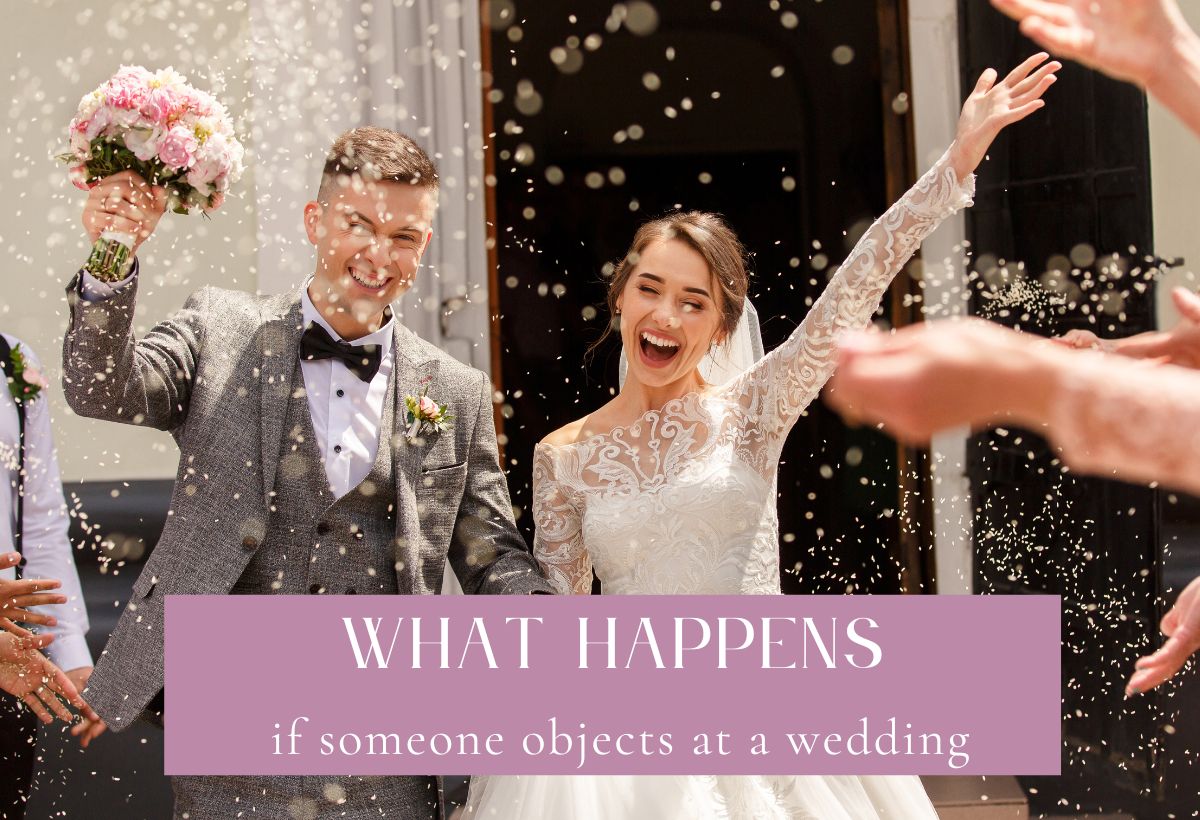
What Happens If Someone Objects at A Wedding
The law of England and Wales allows any person to object to the marriage of another. This is called ‘disallowing’ the marriage. If someone objects, they must provide reasons for their objection in court. However, there are some rules around who can object and how they must do so if they wish to have their objection upheld. A party wishing to disallow a marriage can do so before or during the ceremony (but not after). They must also give valid reasons for their objection which are considered reasonable by the judge hearing their case. If no reason is given at all then it will be assumed that there isn’t one and the marriage will still be valid under law even if someone does object.
It depends on who objects.
It depends on who objects.
If you’re marrying someone in England or Wales and one of your parents or grandparents objects to the marriage, then the registrar will ask you to show that there’s no good reason for them to do so. If they can’t show this, then your marriage won’t go ahead and you’ll need to apply for a special licence before getting married again (although this does depend on what type of objection was made).
The person who objects is required to give reasons for their objection.
If you’re the person who is objecting, you are required to give reasons for your objection. If you do not give any reasons, then the marriage will still be valid. If you do state your reasons and they are not considered valid by the minister or registrar conducting the ceremony, then they will not allow it to go ahead.
The person objecting must state their name and address clearly so that they can be identified if necessary (for example if there is an appeal). The person objecting must also be over 18 years old at least one month before making an objection; otherwise their application will be refused by a court as being made without reasonable cause or excuse.
An objection can be made before or during the marriage ceremony.
A person can object to a marriage at any time during a wedding ceremony. They must give reasons for their objection and be able to show that they have a good reason for objecting. The person who objects must also be able to prove that their reason is valid by providing evidence, such as documents or witnesses who will support their claim.
Two people who object must do so on the same grounds.
You can object to a marriage on the following grounds:
- You are related to either party.
- You believe that the marriage would result in harm to your relationship with the person you are marrying (such as if they were already married).
- The couple is already legally married and want to marry again.
If no reason is given, the marriage is still valid even if an objection has been made.
If no reason is given, the marriage is still valid even if an objection has been made. The person who objects must give reasons for their objection. If they don’t, it means that they are not authorised to make an objection and therefore cannot prevent the ceremony from going ahead.
In some countries (such as Scotland), only one of the parties needs to be present at your wedding for it to go ahead. However this isn’t true everywhere – many other countries require both partners-to-be appear together before they’ll allow a marriage ceremony to proceed without further ado!
Takeaway:
If you are in the wedding party, it is important to remember that an objection can still be made even after the ceremony has begun. However, if you have been tasked with giving away the bride or helping with any other part of the ceremony–such as walking down an aisle or reading a poem–it’s best not to interrupt unless absolutely necessary.
If someone objects at your friend’s wedding, don’t worry: Their marriage is still valid! They just need to file paperwork within 30 days of their wedding day and provide reasons why they think their union should not stand. This can be done through any court clerk’s office or county recorder’s office where they were married (or plan on getting married). If no reason is given within those 30 days, then there will be no obstacles for these newlyweds’ future together!
Conclusion
We hope this article has helped you understand what happens if someone objects at a wedding. You can also read our other articles on marriage and weddings, including how to plan your perfect day!
